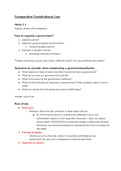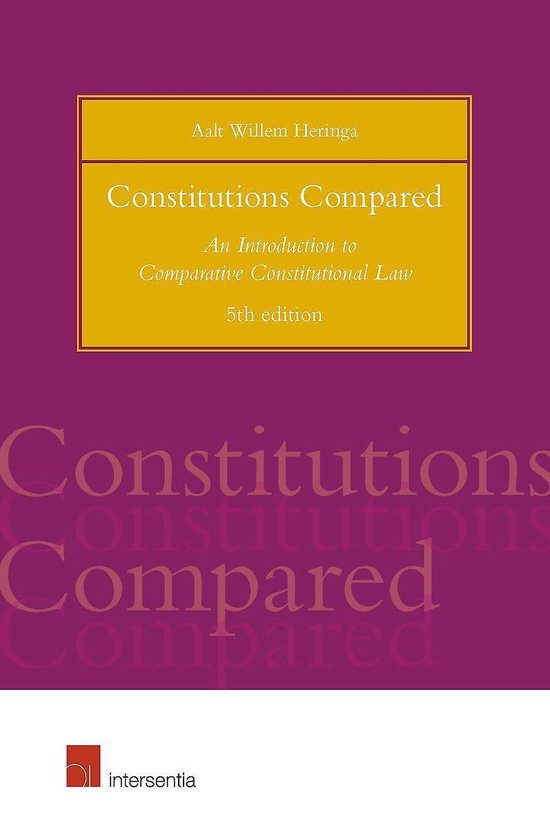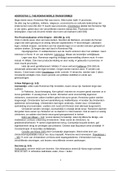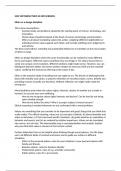Other
Extended Lecture Notes on Comparative Constitutional Law
- Course
- Institution
- Book
This document comprises extensive notes on the ‘Comparative Constitutional Law’ course offered at the University of Groningen. It entails all the relevant content and materials to succeed in the final examination. Moreover, answers to the Q&A that took place at the end of the block are included...
[Show more]







